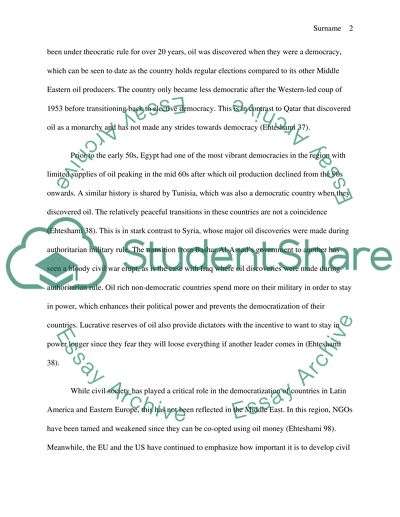(How has the oil wealth affected the prospects of democratization in Essay. Retrieved from https://studentshare.org/history/1488518-how-has-the-oil-wealth-affected-the-prospects-of
(How Has the Oil Wealth Affected the Prospects of Democratization in Essay. https://studentshare.org/history/1488518-how-has-the-oil-wealth-affected-the-prospects-of.


